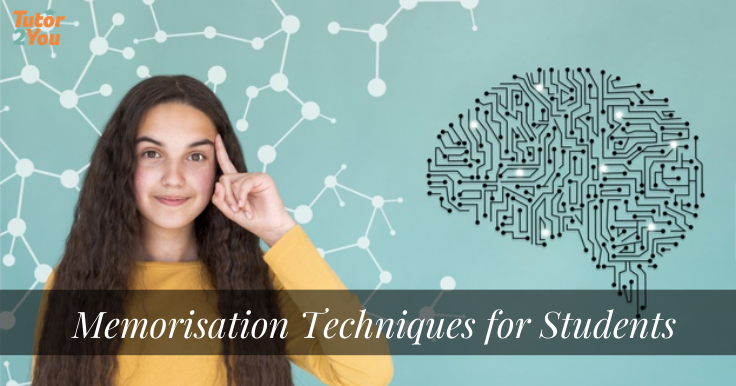
Memorisation Techniques for Students
Memorising is an aspect of learning that helps students to retain things they have learned and assists educators to review concepts taught to their pupils. The value of memorising starts early on in the education process with young learners memorising spelling words and their times tables.
Memorising continues to the higher levels of education when students need to learn and remember subject facts and higher order formula. Since memorising is part and parcel of our education system here are some answers to frequently asked questions.
What exactly is memorising?
It is a conscious activity in the brain that allows retention of knowledge. The brain has two aspects of memory. The short term memory, known as the working memory, and the long term memory known as the storing memory. The working memory remembers and absorbs what is happening in the present. The long term memory stores facts and figures and ways of doing things learnt in the short term memory. Both aspects of memory are needed for memorising and study skills.
How do you help this process of memorising?
There are many different study and memorising skills that can help. Before you start try to confirm what kind of learner your child is. There are three types of learning styles:
- Auditory – learning by listening – hearing messages, repeating information.
- Visual – learning by seeing - reading study guides, notes, keywords.
- Kinetics – learning by doing – practical approach to learning using all the senses.
Some learners favour a combination of the ways of learning.
How do you engage the short term memory?
The short term memory is the working memory and therefore making this part of the brain’s capacity to memorise requires work. The brain needs the exercise of reading, listening, questioning, and engaging in learning activities. Making notes and writing keywords help with short term memory. Playing games and interacting with the material to be learned is part of encouraging short term memory.
How do you encourage long term memory?
Long term memory is the storage part of memory. The act of reviewing notes and making mind maps to commit the notes to memory, helps the brain to store the information. Using the information gathered in the short term process puts the information into the storage or long term memory bank.
What practical memory training skills can children benefit from?
- Using keywords to summarise a topic. The keywords lead the memory to the other details required that have been stored in the brain’s memory.
- Mind maps with the central point of the topic leading to the other pieces of information. Mind maps are a great way to commit larger tracts of information to memory.
- Memory games and flash cards. Especially useful for younger learners. You can make your own cards using spelling words or word families.
- Breaking big chunks of information into smaller blocks and memorising the small blocks. Knowing what is in the small block leads to remembering further detail. The small facts link together to remember the bigger picture.
- Q. and A. - encourage questions and answers to understand the topic and remember the key information.
- Frequent discussions and critical thinking around the topic to remember.
- Write and remember.
Look – cover – write - check is a good formula for memorising. The learner looks at the information, then without looking at the material to be learned, writes it down and follows up with checking – did the learner remember the work or the words? - Learning acronyms for particular formula or spelling rules. The rule of i before e except after c, is a popular memory tactic for tricky words like conceive.
I have Tried All of these, What else can I do?
Walking and Learning
Did you know that walking in a wide open space awakens the brain. The gentle act of walking and repeating the work to be learned allows the conscious mind to focus on learning.
Writing and learning
Writing out your notes and re-writing and summarising helps with memorising. The physical writing of the words helps the brain to remember and organise the words in the short term memory and the long term memory.
Playing and learning
Alfred Mercier a physician and a writer said:
“What we learn with pleasure we never forget.”
Think of games and activities to make the process of learning fun. Memory games and quiz activities can include the whole family and turn the learning process into an enjoyable activity. Younger learners really benefit from memory games. This is because in a recreational way they are preparing for the act of using memory for their school work.
How can we improve memory?
The brain, where the short and long term memory functions, is the control centre of the body. The brain needs to lead a healthy lifestyle. A balance of work and play encourages a healthy routine for the body and the brain. Healthy eating is important too. Feed the brain the right foods to keep healthy and optimise memory skills. Healthy sleep patterns and sufficient exercise all contribute to the brains’ ability to function efficiently.
Making sure that children can actively engage in memory skills is a vital element of education. Memory plays a part in day to day living, as well as the way children pass through the education system. Knowing how to use memorisation tactics will always be useful for every learner, and for parents to know how to encourage effective learning.
If your child requires some additional support may it be in-home or online, we're here to help! Visit https://tutor2you.com.au/ to book a free consultation with our trained & certified tutors today.



